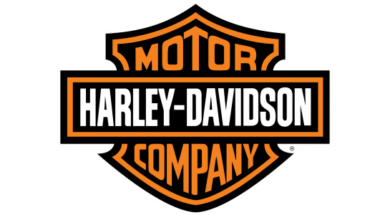Mar. 9, 2009 – Answering the F&I staffing issue
By Jon Mohr
Contributing writer
Of the many questions dealers consider when trying to decide whether to offer their customers F&I, the two most frequently asked are, “Can I afford F&I?” and “How can my dealership offer F&I most profitably?”
The opinions of F&I experts differ with respect to the second question, but they are nearly unanimous on the first: Dealers who don’t offer F&I products are doing their customers a disservice and leaving a lot of money on the table at the same time.
How much? Although an exact amount is hard to pin down, the consensus seems to be that dealers who offer F&I make, on average, about $500 in profit for every unit they sell.
“It’s important to keep in mind that’s per unit sold, not per vehicle financed,” said Sam Dantzler, president of Assurant Solutions’ 20 groups division. “A lot of companies like to compare their PVF number — per vehicle financed number — and say, ‘Look, mine’s higher.’ I’m talking about every unit that goes out has an average of that much money on it, because we know we get more on a finance deal.”
So dealers who want a piece of that action must then return to the question of how. Is it best to hire or train employees and offer F&I in-house, or is contracting with a third-party provider the better way to go?
When it comes to the process a dealer should use to answer this question, the F&I experts contacted for this article are once again in agreement.They just don’t always agree on what the answer is.
“I think the question ‘Should I have an F&I person or not?’ is different than ‘Should I sell F&I products or not?’” said Julia McCarthy, president of MMCS Inc., a company that provides dealers with the software, support and expertise that allows them to offer F&I without having to staff someone in that role. “Should I have an F&I person or not?’ has to be a financial decision.”
Peter Jones, a dealership trainer, consultant and owner of Peter Jones and Associates, also believes the decision to hire dedicated F&I employees is one that can be made with a quick tour of the balance sheet.
“Dealers just need to look at the industry metric and realize the $500 per unit profit average, ‘this is how many units I sell, this is what it would cost to pay someone, am I happy with the money that’s left over?” Jones said. “So they can answer that question themselves to determine if they should do it.”
Where the experts differ is on the use of outsourcing to provide F&I. Dantzler believes using a third-party company to handle a dealership’s F&I is better than nothing at all, but hiring or training someone to work in-house is by far the better option.“If I’m going to be incurring payroll for a full-time F&I person internally or going with a third-party company, you’re absolutely insane to go with a third-party company as opposed to going internally with it,” he said. “Because if it’s treated as it should be, as truly a sales position that is commission-based, and the things that you’re offering the customer is in their best interest, it’s the right thing to do. And I’m going to say that you can get considerably higher per unit sold numbers having a full-time person in-house.”
To McCarthy, finding the correct match between qualified employee and committed dealership is not so simple. She says many of the dealers she’s talked to who have an F&I employee more often have a paper pusher doing a dozen other things in addition to their F&I duties. And those people usually aren’t really knowledgeable or successful at what they do.
McCarthy also points out that finding qualified F&I employees isn’t always easy in more rural areas and that many dealers end up shooting themselves in the foot by hiring an F&I person, then rethinking and eventually reworking that employee’s initial compensation package after the money starts rolling in.
“If you’re making a commitment, make it,” McCarthy said. “And the reason most dealers aren’t interested in having an F&I person is that they aren’t willing to make that commitment.”
Dantzler does not agree that finding qualified F&I employees is difficult, especially given the number of automobile dealerships that have closed in the past several months. And he believes many of the most successful F&I personnel are former salespeople.
“We’ve always had the notion of taking your best sales guy on the floor and making him your F&I manager,” Dantzler said. “Sure you’re pulling him off the floor, but he can make so much more money for the dealership in the F&I chair than he can selling units.
“It does take grooming. It takes the right person, well focused, understands the business and banks, but it can be done and there are plenty of people out there who can do it.”
What concerns Jones about hiring a third-party provider to administer F&I are the liability issues that could arise. He says it’s important for a dealership to make sure any third-party F&I provider it hires is a reputable one.
McCarthy says that, at least in the case of her company, liability is not an issue for dealers as protection is built into the system.
But whether outsourced or in-house, the experts agree it’s more important than ever for dealers to generate F&I revenue. And all the answers in the world won’t matter if those dealers continue to ignore the opportunity F&I presents. “The only obstacle that I would see for dealers, and from an internal standpoint it’s a biggie, is these guys just need to break old habits,” Jones said. “The obstacle would be themselves.”




